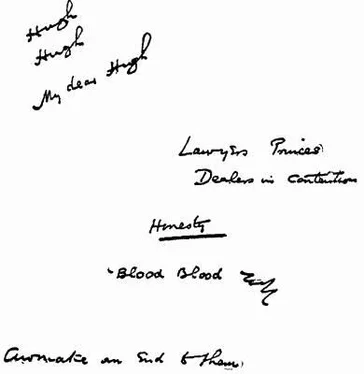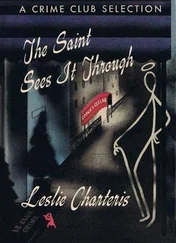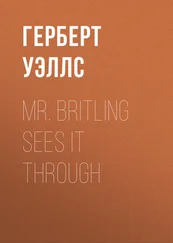Herbert Wells - Mr. Britling Sees It Through
Здесь есть возможность читать онлайн «Herbert Wells - Mr. Britling Sees It Through» весь текст электронной книги совершенно бесплатно (целиком полную версию без сокращений). В некоторых случаях можно слушать аудио, скачать через торрент в формате fb2 и присутствует краткое содержание. Жанр: Классическая проза, на английском языке. Описание произведения, (предисловие) а так же отзывы посетителей доступны на портале библиотеки ЛибКат.
- Название:Mr. Britling Sees It Through
- Автор:
- Жанр:
- Год:неизвестен
- ISBN:нет данных
- Рейтинг книги:4 / 5. Голосов: 1
-
Избранное:Добавить в избранное
- Отзывы:
-
Ваша оценка:
- 80
- 1
- 2
- 3
- 4
- 5
Mr. Britling Sees It Through: краткое содержание, описание и аннотация
Предлагаем к чтению аннотацию, описание, краткое содержание или предисловие (зависит от того, что написал сам автор книги «Mr. Britling Sees It Through»). Если вы не нашли необходимую информацию о книге — напишите в комментариях, мы постараемся отыскать её.
Mr. Britling Sees It Through — читать онлайн бесплатно полную книгу (весь текст) целиком
Ниже представлен текст книги, разбитый по страницам. Система сохранения места последней прочитанной страницы, позволяет с удобством читать онлайн бесплатно книгу «Mr. Britling Sees It Through», без необходимости каждый раз заново искать на чём Вы остановились. Поставьте закладку, и сможете в любой момент перейти на страницу, на которой закончили чтение.
Интервал:
Закладка:
She had written ignoring his silence and absence, or rather treating it as if it were an incident of no particular importance. Apparently she had not called upon the patient and devoted Oliver as she had threatened; at any rate, there were no signs of Oliver in her communication. But she reproached Mr. Britling for deserting her, and she clamoured for his presence and for kind and strengthening words. She was, she said, scared by this war. She was only a little thing, and it was all too dreadful, and there was not a soul in the world to hold her hand, at least no one who understood in the slightest degree how she felt. (But why was not Oliver holding her hand?) She was like a child left alone in the dark. It was perfectly horrible the way that people were being kept in the dark. The stories one heard, " often from quite trustworthy sources ," were enough to depress and terrify any one. Battleship after battleship had been sunk by German torpedoes, a thing kept secret from us for no earthly reason, and Prince Louis of Battenberg had been discovered to be a spy and had been sent to the Tower. Haldane too was a spy. Our army in France had been "practically sold " by the French. Almost all the French generals were in German pay. The censorship and the press were keeping all this back, but what good was it to keep it back? It was folly not to trust people! But it was all too dreadful for a poor little soul whose only desire was to live happily. Why didn't he come along to her and make her feel she had protecting arms round her? She couldn't think in the daytime: she couldn't sleep at night....
Then she broke away into the praises of serenity. Never had she thought so much of his beautiful "Silent Places" as she did now. How she longed to take refuge in some such dreamland from violence and treachery and foolish rumours! She was weary of every reality. She wanted to fly away into some secret hiding-place and cultivate her simple garden there—as Voltaire had done.... Sometimes at night she was afraid to undress. She imagined the sound of guns, she imagined landings and frightful scouts "in masks" rushing inland on motor bicycles....
It was an ill-timed letter. The nonsense about Prince Louis of Battenberg and Lord Haldane and the torpedoed battleships annoyed him extravagantly. He had just sufficient disposition to believe such tales as to find their importunity exasperating. The idea of going over to Pyecrafts to spend his days in comforting a timid little dear obsessed by such fears, attracted him not at all. He had already heard enough adverse rumours at Claverings to make him thoroughly uncomfortable. He had been doubting whether after all his "Examination of War" was really much less of a futility than "And Now War Ends"; his mind was full of a sense of incomplete statements and unsubstantial arguments. He was indeed in a state of extreme intellectual worry. He was moreover extraordinarily out of love with Mrs. Harrowdean. Never had any affection in the whole history of Mr. Britling's heart collapsed so swiftly and completely. He was left incredulous of ever having cared for her at all. Probably he hadn't. Probably the whole business had been deliberate illusion from first to last. The "dear little thing" business, he felt, was all very well as a game of petting, but times were serious now, and a woman of her intelligence should do something better than wallow in fears and elaborate a winsome feebleness. A very unnecessary and tiresome feebleness. He came almost to the pitch of writing that to her.
The despatch from General French put him into a kindlier frame of mind. He wrote instead briefly but affectionately. As a gentleman should. "How could you doubt our fleet or our army?" was the gist of his letter. He ignored completely every suggestion of a visit to Pyecrafts that her letter had conveyed. He pretended that it had contained nothing of the sort.... And with that she passed out of his mind again under the stress of more commanding interests....
Mr. Britling's mood of relief did not last through the week. The defeated Germans continued to advance. Through a week of deepening disillusionment the main tide of battle rolled back steadily towards Paris. Lille was lost without a struggle. It was lost with mysterious ease.... The next name to startle Mr. Britling as he sat with newspaper and atlas following these great events was Compiègne. "Here!" Manifestly the British were still in retreat. Then the Germans were in possession of Laon and Rheims and still pressing south. Maubeuge surrounded and cut off for some days, had apparently fallen....
It was on Sunday, September the sixth, that the final capitulation of Mr. Britling's facile optimism occurred.
He stood in the sunshine reading the Observer which the gardener's boy had just brought from the May Tree. He had spread it open on a garden table under the blue cedar, and father and son were both reading it, each as much as the other would let him. There was fresh news from France, a story of further German advances, fighting at Senlis—"But that is quite close to Paris!"—and the appearance of German forces at Nogent-sur-Seine. "Sur Seine!" cried Mr. Britling. "But where can that be? South of the Marne? Or below Paris perhaps?"
It was not marked upon the Observer's map, and Hugh ran into the house for the atlas.
When he returned Mr. Manning was with his father, and they both looked grave.
Hugh opened the map of northern France. "Here it is," he said.
Mr. Britling considered the position.
"Manning says they are at Rouen," he told Hugh. "Our base is to be moved round to La Rochelle...."
He paused before the last distasteful conclusion.
"Practically," he admitted, taking his dose, "they have got Paris. It is almost surrounded now."
He sat down to the map. Mr. Manning and Hugh stood regarding him. He made a last effort to imagine some tremendous strategic reversal, some stone from an unexpected sling that should fell this Goliath in the midst of his triumph.
"Russia," he said, without any genuine hope....
§ 17
And then it was that Mr. Britling accepted the truth.
"One talks," he said, "and then weeks and months later one learns the meaning of the things one has been saying. I was saying a month ago that this is the biggest thing that has happened in history. I said that this was the supreme call upon the will and resources of England. I said there was not a life in all our empire that would not be vitally changed by this war. I said all these things; they came through my mouth; I suppose there was a sort of thought behind them.... Only at this moment do I understand what it is that I said. Now—let me say it over as if I had never said it before; this is the biggest thing in history, that we are all called upon to do our utmost to resist this tremendous attack upon the peace and freedom of the world. Well, doing our utmost does not mean standing about in pleasant gardens waiting for the newspaper.... It means the abandonment of ease and security....
"How lazy we English are nowadays! How readily we grasp the comforting delusion that excuses us from exertion. For the last three weeks I have been deliberately believing that a little British army—they say it is scarcely a hundred thousand men—would somehow break this rush of millions. But it has been driven back, as any one not in love with easy dreams might have known it would be driven back—here and then here and then here. It has been fighting night and day. It has made the most splendid fight—and the most ineffectual fight.... You see the vast swing of the German flail through Belgium. And meanwhile we have been standing about talking of the use we would make of our victory....
"We have been asleep," he said. "This country has been asleep....
Читать дальшеИнтервал:
Закладка:
Похожие книги на «Mr. Britling Sees It Through»
Представляем Вашему вниманию похожие книги на «Mr. Britling Sees It Through» списком для выбора. Мы отобрали схожую по названию и смыслу литературу в надежде предоставить читателям больше вариантов отыскать новые, интересные, ещё непрочитанные произведения.
Обсуждение, отзывы о книге «Mr. Britling Sees It Through» и просто собственные мнения читателей. Оставьте ваши комментарии, напишите, что Вы думаете о произведении, его смысле или главных героях. Укажите что конкретно понравилось, а что нет, и почему Вы так считаете.






